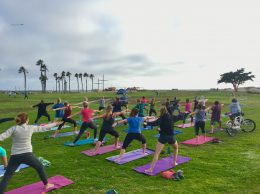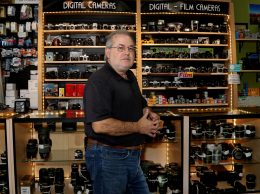California blocks workers’ path to small business ownership
The lack of serious attention to the dismal state of small business formation in California and across the nation has been one of the most disappointing aspects of the 2016 campaign.
Small business gets a lot of lip service but scant real attention. Meanwhile, the number of small business failures continues to outpace new starts. The number of entrepreneurs who are quite content to operate without venture capital or an IPO continues to shrink, dragging down GDP growth.
The group that’s particularly hard hit by this “valley of death” for small business is non-college graduates. For thousands of skilled workers without a bachelor’s degree, small business ownership was the easiest path to the middle class. That path has been effectively closed off for many, and licensing rules are often the reason why.
A bit of hope arrived on Oct. 4, from an unexpected source. The Little Hoover Commission, the state watchdog agency chaired by Santa Barbara attorney and former legislator Pedro Nava, weighed in with a highly critical view of how California’s rules for occupational licensing restrict opportunities for millions of state workers.
In “Jobs For Californians: Strategies to Ease Occupational Licensing Barriers,” the commission wrote that the state’s byzantine set of rules has created “a thicket of occupational regulation that desperately needs untangling.” It found, among other things, that the rules make it harder for former offenders, military spouses, veterans, people trained abroad and out-of-state and many others to obtain work.
The rules drive consumer prices higher by restricting the supply of some occupations.
And I would argue that by making it harder and harder to gain an occupational license, it imposes big systemic costs for people who want to strike out on their own and create new companies.
The report states flatly that one in five workers in California need permission from the state to pick up their paycheck.
California’s rules are the worst among the 50 states, they often make it impossible for skilled practitioners in one state to pick up their profession in California and they create a patchwork of regulation.
They also leave the state’s occupational workers with less earning power in some of the most costly places on the planet.
One example: A manicurist in Sacramento needs 400 hours of training but a tattoo artist in Palm Springs needs only to pay a $25 fee to a local agency. It’s a mess.
The solution that the commission recommends is a rifle-shot review of licensing agencies to review and eliminate rules, make reciprocity arrangements with other states and sunset regulatory requirements so they come up for regular review. The commission recommends smoothing the path for military spouses to obtain licenses if they have one in another state and providing a path for veterans not to lose their license if they were deployed overseas when their certification renewal period expired.
What the Little Hoover Commission has discovered — to the surprise of few people who’ve watched the process of regulatory creep — is that rules that become embedded in the system continue to perpetuate impacts on the economy that are unintended and longer lasting than anybody anticipated.
The last time that California’s regulatory scheme came under scrutiny was just a decade ago when then-Gov. Arnold Schwarzenegger proposed a sweeping overhaul of all of the state’s boards and commissions. That was an administrative overreach that generated tremendous blowback and perhaps the ambition of a governor whose vision was bigger than his ability to impact the real world.
The Little Hoover Commission’s recommendations are more reflective of what can and should be done to give consumers a break, make the state more competitive and, above all, make it just a bit easier for a talented occupational worker to reach for the dream of small business ownership.
The commission has done its job. Now it’s up to the legislature and the governor to make things happen.
• Reach Editor Henry Dubroff at [email protected].












